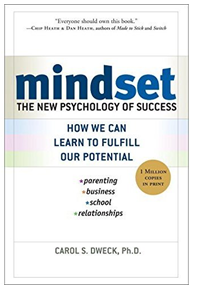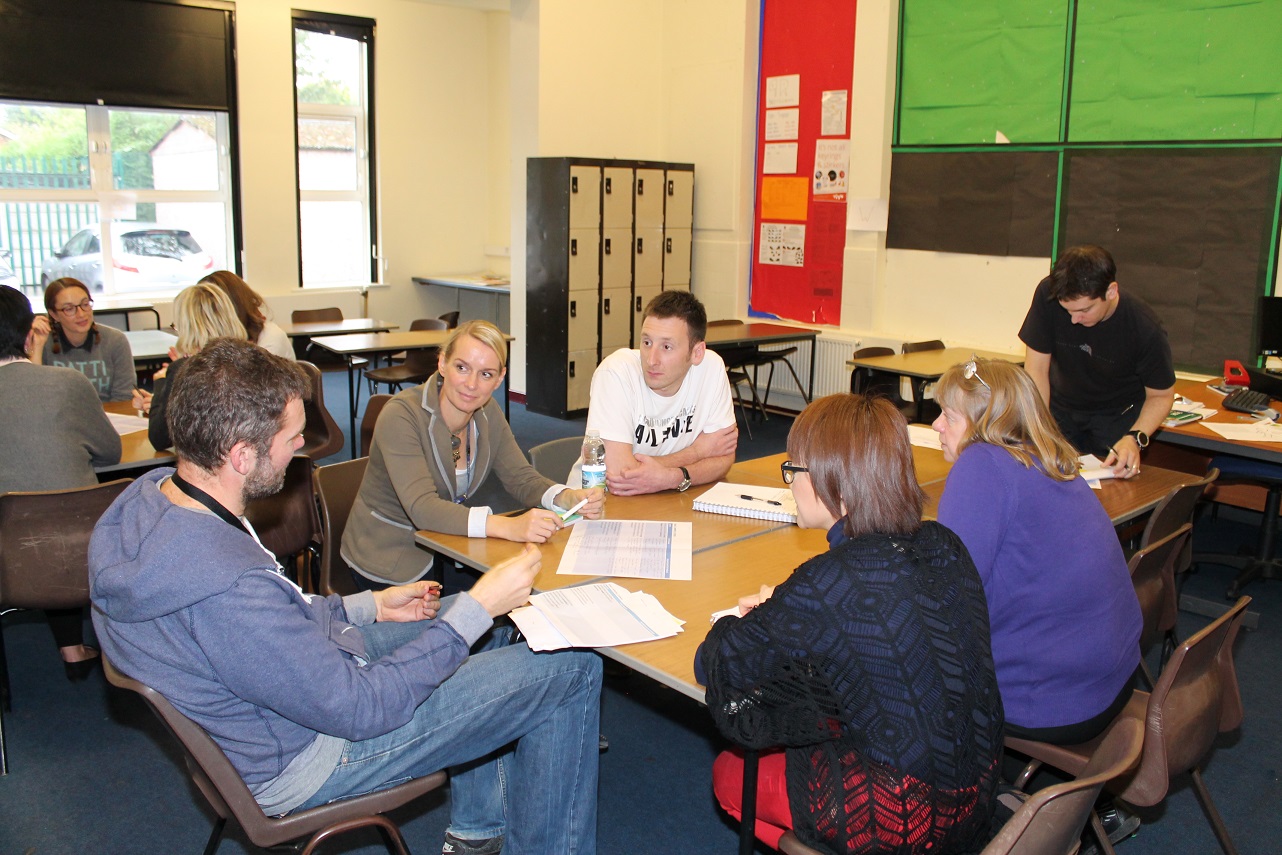Our Vision for Teaching and Learning.
- Our aim is to provide an outstanding learning environment which inspires learners, enables them to flourish and achieve successful outcomes, whilst at the same time equipping them with the skills and knowledge for future success in whatever pathway they choose.
- We believe that we are all learners who never stop learning and this underpins our recognition of the value of ongoing CPD.
- We are committed to celebrating successful learning that takes place both within and beyond the classroom.
- We recognise that for effective learning to take place, we need a strong partnership of skilled teachers and support staff, motivated students and supportive parents.
“There is a huge prize waiting to be claimed by teachers. By collecting better evidence about what works best, and establishing a culture where this evidence is used as a matter of routine, we can improve outcomes for children, and increase professional independence”.
Dr Ben Goldacre
At Stockport School, we are committed to researching and developing the most effective teaching and learning strategies to best support your child’s progression. We have an extensive staff professional learning programme to enable development in key areas identified at the start of the year. Some of the areas we are currently working on are detailed below.
The Teacher Development Trust

As a result of our belief in collaborative working and the importance of continuing professional development, we have joined the Teacher Development Trust, who state that they are:
‘dedicated to improving the educational outcomes of children by ensuring they experience the most effective learning’
‘building tools to help teachers to transform their practice and achieve success for all their pupils’.
TDT Mission Statement www.tdtrust.org
Through our work with the TDT, we have started a classroom research approach called ‘Lesson Study’. A group of 15 teachers are currently working together to carry out research into specific areas of teaching and learning to look at how they can improve outcomes for our students
Developing A Growth Mindset
‘…the major factor in whether people achieve expertise is not some fixed prior ability, but purposeful engagement’
Dr Robert Sternberg, psychologist quoted in ‘Mindset’ by Dr Carol Dweck
Dr Carol Dweck is Professor of Psychology at Stanford University. She has carried out research into the best way to talk about learning and, from this work, she developed the theory of growth and fixed mindset.
Research shows that students with a fixed mindset believe their ability is fixed and that there is nothing they can do about it. Students with a growth mindset believe that they can grow and build their skills if they put in effort.
If we talk about learning in the right way, we can encourage a growth mindset, enabling students to make progress in all areas of their school life. As a staff, we have had training on using language to encourage a growth mindset, using purposeful praise, effective feedback and developing the ways we motivate students. Our next steps with this work will be to introduce the idea formally to the students and measure the impact that it is having.
We believe that by encouraging students to have a growth mindset, they will be more open to feedback, more confident to face challenging work and more resilient when things don’t go right the first time. This ties in with some of our other themes for the year detailed below.
You can see Dr Carol Dweck’s talk about this in her presentation ‘The Power of Yet’, available on youtube
How you can help
This link will take you to a PDF used to introduce Year 10 parents to the theory of mindsets, and how we can use language to support building a growth mindset. If you find the video interesting, you could try to use this approach when talking to your child about school or extra-curricular activities.

Marking and Feedback
During the year, we have been reviewing our approach to marking and feedback and, in the light of what we have learnt from looking at how to develop a growth mindset, the employability attributes and the demands of the new GCSEs, we have been establishing the most effective ways of providing feedback to students on the work that they have completed and the progression of their learning.
Traditionally, feedback has been in the form of marking and comments at the end of a piece of work, but we are aware that the same comment might be written a number of times and the student has not changed how they work, suggesting the feedback is not working. Therefore, we have been reviewing how to provide feedback in a way that will ensure an impact on students’ learning.
Different forms of feedback might include:
- Students using assessment criteria to evaluate their own work and then the teacher confirming if they have got this right
- Providing a lesson looking at key areas for development based on the work all students handed in and then providing time for students to improve their own work or tackle a new piece with similar skills
- Highlighting key elements of the students’ work that show where they have improved
- Highlighting key elements of the students’ work that need improvement and asking them to make the developments
- Asking a question at the end of a piece of work to further thinking about the learning / topic
- Asking students questions about how they approached the work or why they think they were / were not successful and providing feedback on this commentary
- Asking students to complete a specific task at the start of the next lesson that is based on what the teacher has seen in the previous work, providing an opportunity to develop learning / correct misconceptions
- Verbal feedback whilst a student is working
How you can help:
Students make the most progress when they know why a piece of work was successful or not and can reflect on how they approached the work. This enables them to repeat what worked or find an alternative approach to what didn’t work.
Metacognitive (thinking about thinking) questions can help students develop this understanding. Below are some of the questions that teachers might ask your child in class. Asking these kinds of questions at home about their homework can help your child make progress.
Before the work:
During the work:
After the work:
- Is this similar to something
you’ve done before?- What worked for you
before? - Do you need to do
anything differently? - Why will this work
be better?
- What worked for you
- What would be a good
example of this work? - Have you got any previous
targets that you want to
focus on? - What do you need to do
first?
- Are you on the right track
– how do you know? - Is there anything you need
to do differently? - Where could you get help?
- What went well?
- What was it about
the way you
approached the work
that meant this
worked? - Where might you use
this again?
- What was it about
- What could you have done
better?- How will you find out
what to do for next
time? - What would you do
differently?
- How will you find out
- Where do you feel you put
particular effort in? - What are you proud of
with this work and why?
Reporting & Assessment
Reporting & Assessment
There are
three formal Assessment Points at regular intervals over the academic year. The
detailed grade card produced from these ‘APs’ are shared with parents and
include an update on their child’s academic progress against their target
grade. These target grades are based on the results from Key Stage Two tests as a
starting point, and adapted by teachers where necessary. Also included on the
grade cards for each student are:
·
Lesson and homework engagement;
·
School attendance and punctuality;
·
Enrichment attendance;
·
Reading age;
·
Behaviour points for both positive and negative conduct.
The information gathered from the Assessment Points is used in a variety of ways to inform many different groups of staff and parents of current and predicted performance, which leads to action plans to ultimately improve students’ performance. The graphic below illustrates examples of the use of Assessment Point data.a.
Staff meet on a regular basis to discuss any individuals who are giving cause for concern and parents and carers are invited into school to play their important part in the monitoring of their child’s progress.
“Teachers have high expectations of every pupil. Pupils rise to this challenge as a result. The most able, in particular, are on track to make even better progress than in previous years across many subjects because teachers aim high….” – Ofsted
“Teachers regularly check pupils’ work in class and address misunderstandings and reframe questions. As a consequence, pupils rise to these high expectations and make considerable progress from their different starting points.” – Ofsted
“…enabled pupils to make exceptional progress year on year by the end of Year 11.” – Ofsted
“Disadvantaged pupils and pupils who have special educational needs and/or disabilities attain very well compared to their peers nationally from the same starting points, year on year.” – Ofsted
“…rigorous use of data to track students’ progress towards demanding targets has contributed significantly to better achievement.” – Ofsted
“Teachers mark students’ written work regularly. Some marking is of exemplary quality, for example in English, in showing students the steps that they need to take to improve their work and in insisting that comments are followed up and acted upon.” – Ofsted
Employability
The employability agenda is not just about students’ post-16 choices, but widening our school goal beyond GCSEs to developing attributes such as resilience, independence, creativity and resourcefulness, ensuring students leave our school equipped to shape their life in the way they want, whatever pathway they choose to embark upon.
We know that, to be successful, we need to ensure lessons are challenging, but also that students have been given the opportunity to develop the independence and resilience needed to meet this challenge. During the last year, we have been considering how we can encourage these attributes through our work on growth mindsets and developing our approach to the new GCSEs.
A key part of this work is our Business Class Partnership with Stockport based company, CDL.
How you can help
Shows like X-Factor can make success seem like an instant win and make it easy to forget the hours of practice and preparation that go into creating a successful performance, such as an audition, job interview or exam. It can be helpful if your child has examples of how people around them have achieved success, but also the mistakes they made on the way and how they overcame them (the link on the Growth Mindset section has an interesting article by David Beckham’s mother about the practice that he put in from a very early age behind the ‘natural’ success on the pitch).
If your child is finding work difficult, asking them where they might get help from and supporting them to find their own solutions – even if it’s as simple as asking their teacher – can help build independence and confidence for next time.
Photos from training day with colleagues from CDL and Stockport School working together to consider how to create opportunities for students to build employability skills



